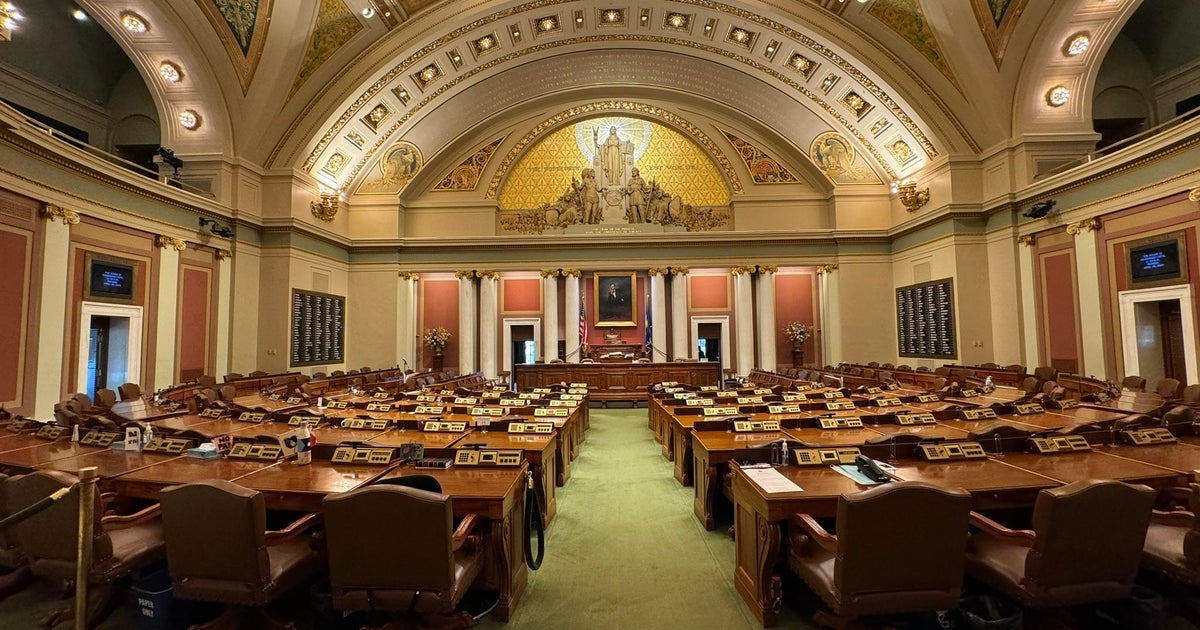Minnesota House Democrats' tax plan includes rebate checks, new tax bracket for highest earners
ST. PAUL, Minn. -- DFL leaders in the state House on Monday released the details of their roughly $3 billion tax plan that includes cash back to Minnesotans and a new "millionaires tax" on the state's highest earners.
"This bill constitutes the largest tax cut in Minnesota history. But these aren't just any tax cuts. The cuts in this bill are targeted to those who need it the most," said Rep. Aisha Gomez, DFL-Minneapolis, the chair of the Taxes Committee.
The proposal mostly benefits low- and middle-income Minnesotans. The 300-page proposal has several provisions, including one-time rebate checks of $275 per taxpayer plus more for up to three dependents. It means a family of five could see $1,375 if they make less than $75,000 per year as a single filer or $150,000 as a married couple filing jointly.
That's less than initial plan from Gov. Tim Walz of $1,000 per person and $2,000 per couple with higher income caps.
There is also a child tax credit of up to $1,175 per child for working families that Democrats say will cut child poverty by 23%. Incomes greater than $35,000 will see start to see the credit phased out.
"The pandemic laid bare the harsh realities of this economy for working class and middle class Minnesotans, while corporations posted record profits and the rich became even richer," Gomez said during a news conference Monday announcing the proposal.
The bill stops short of a full exemption of Social Security income from state taxes for all seniors, which is a top Republican priority that several Democrats in the Senate also said they support.
Half of filers don't pay taxes on Social Security right now, according to the Minnesota Department of Revenue. But these changes mean 76% of seniors would pay no taxes on those benefits, she said.
There's a $100 million boost to state aid to cities and counties so communities can provide public services without levying huge property tax increases.
New revenue sources
The House DFL tax proposal includes credits and rebates, but also new tax changes to bring in more revenue on an ongoing basis since most of the budget surplus is one-time money.
It creates a fifth income tax bracket of 10.85% for married couples making more than $1 million per year and individuals making $600,000. The current highest tax bracket is 9.85%.
The bill also would implement new profit reporting requirements for multinational corporations that Democrats say will boost what the state collects from corporate taxes.
"We're proposing to make the tax code more fair and more progressive to provide sustainable funding for education, health care, transportation, and so much more," said House Speaker Melissa Hortman, DFL-Brooklyn Park.
There are other tax increase proposed in other bills focusing on specific areas of the state budget for the next two years, including a sales tax increase on residents in the Twin Cities-metro counties to fund affordable housing development and rental assistance.
There's a similar hike to provide ongoing resources for transit.
Republicans criticize tax increases
Separately Monday, Senate Republicans held a news conference criticizing several proposals in both chambers of the legislature that would increase taxes and fees at a time when the state has more than a $17.5 billion surplus.
"Minnesotans should know the Democrats' budget this year will lead to higher taxes now, and even higher taxes in the future to support their aggressive government," said Sen. Minority Leader Mark Johnson, R-East Grand Forks.
In a budget agreement between Gov. Tim Walz, Hortman and Senate Majority Leader Kari Dziedzic, new spending benchmarks account for all of the surplus.
The GOP "Give It Back" plan would send $13 billion back to taxpayers over two-years in the form of rebates and income tax rate cuts for the first and second tier. The one-time rebate checks would total $5 billion -- nearly five times the size of what the House DFL is proposing.
It also calls for full elimination of the state income tax on Social Security. Just 11 other states tax some or all of these retirement benefits.
The "Give It Back" plan is unlikely to pass with DFL trifecta control. But in the Senate, where Democrats have a one-seat majority, there's an intra-party rift on Social Security issue as some DFL Senators align with Republicans and campaigned on making all of those benefits tax-free.
"My fear is and Minnesotans' fear across the state is that while the Senate might once again do the right thing and remove this double taxation, when it gets to conference committee, it will be stripped out. That is the concern," said Sen. Carla Nelson, R-Rochester.
Senate Democrats say they will release their own tax proposal in the coming days. Both chambers may go to conference committee to sort out differences on their plans.




